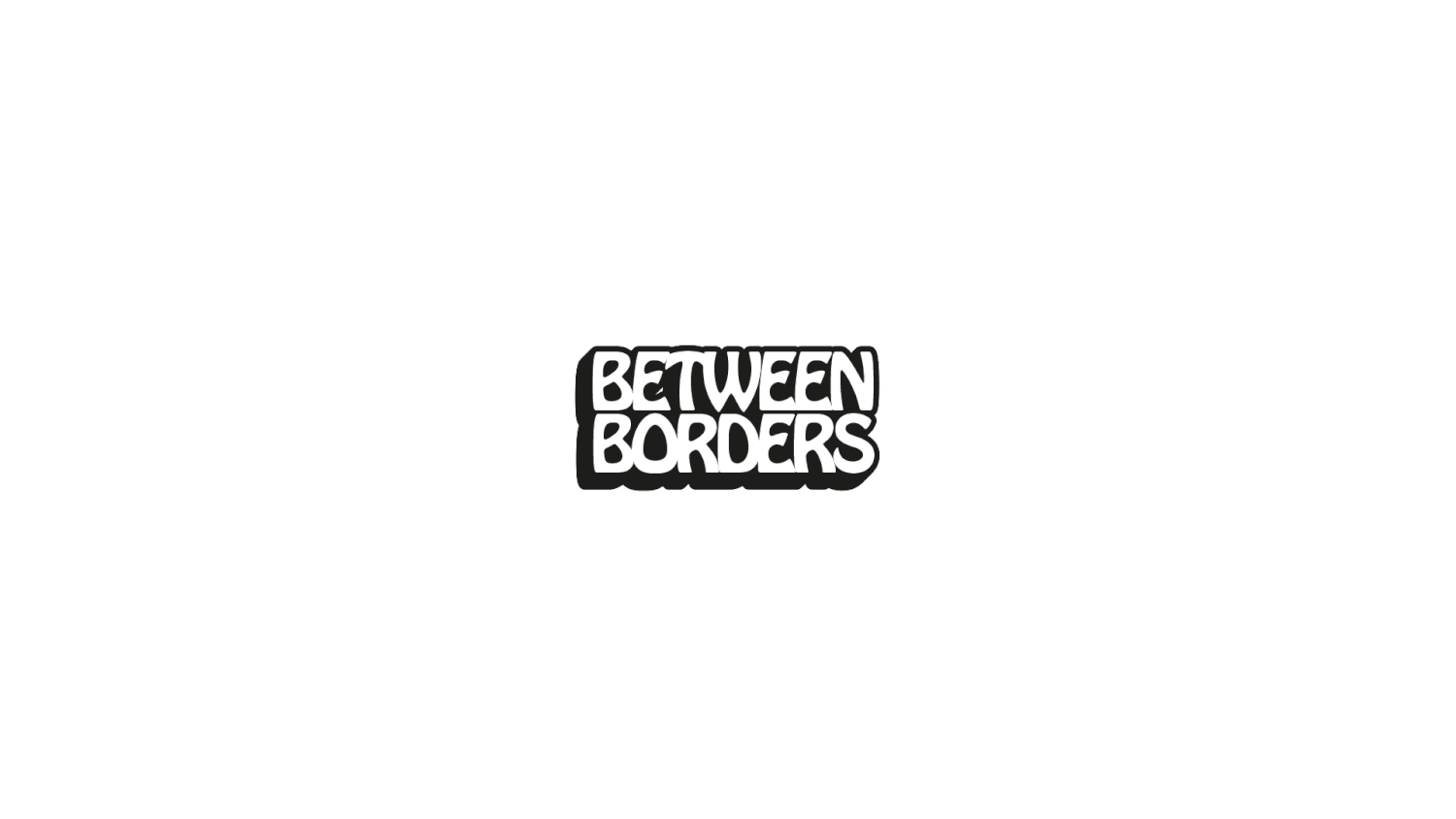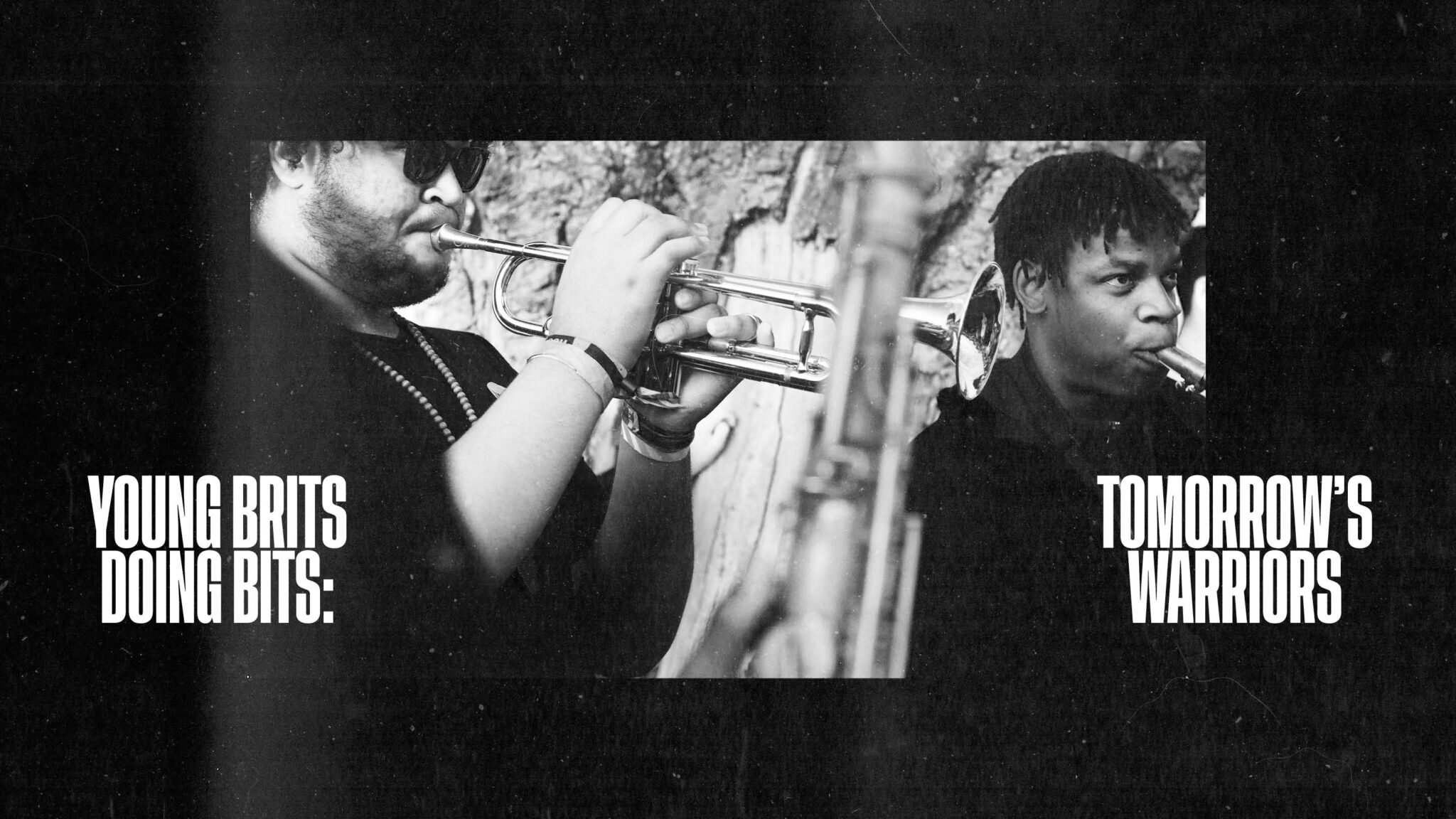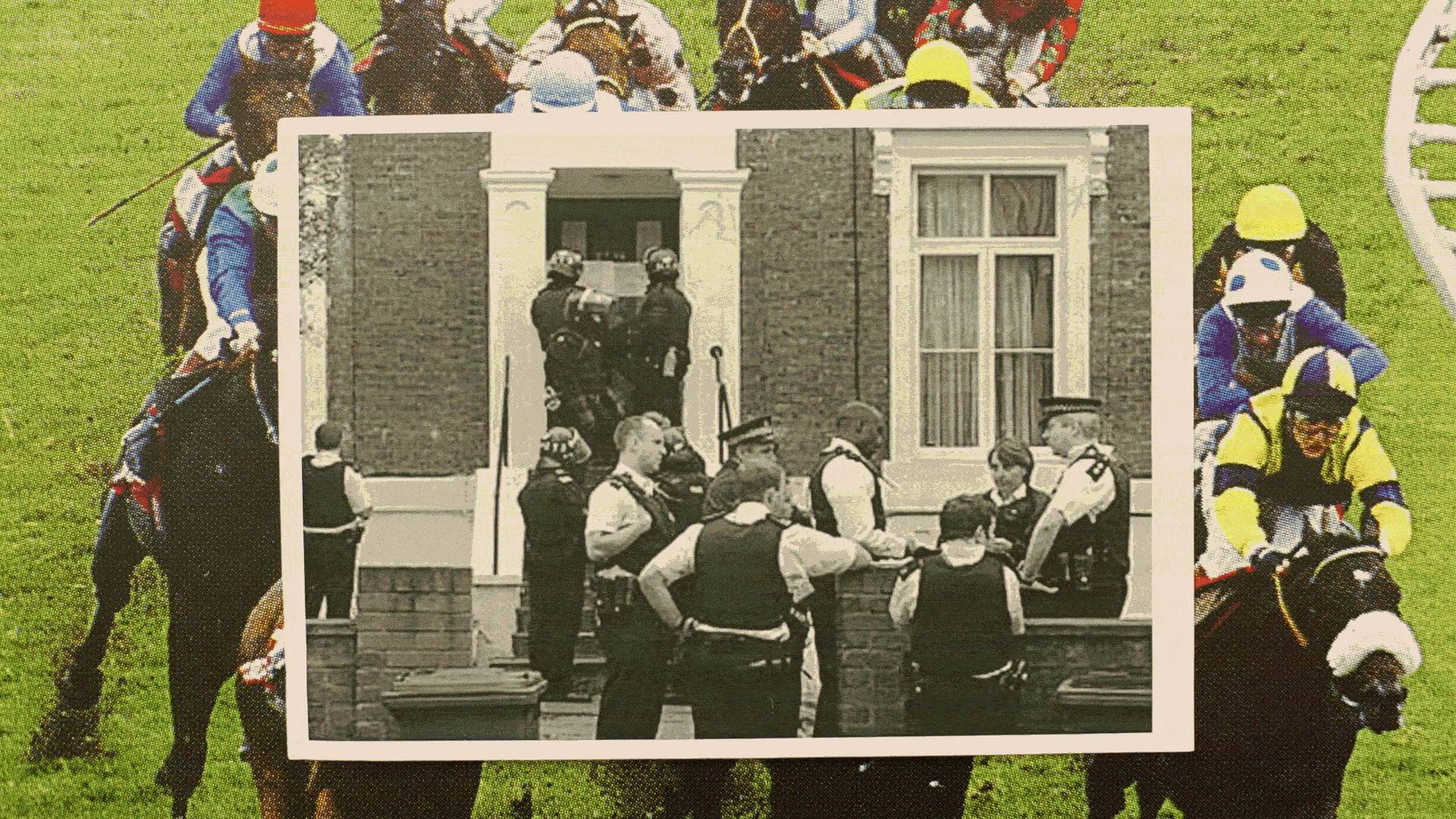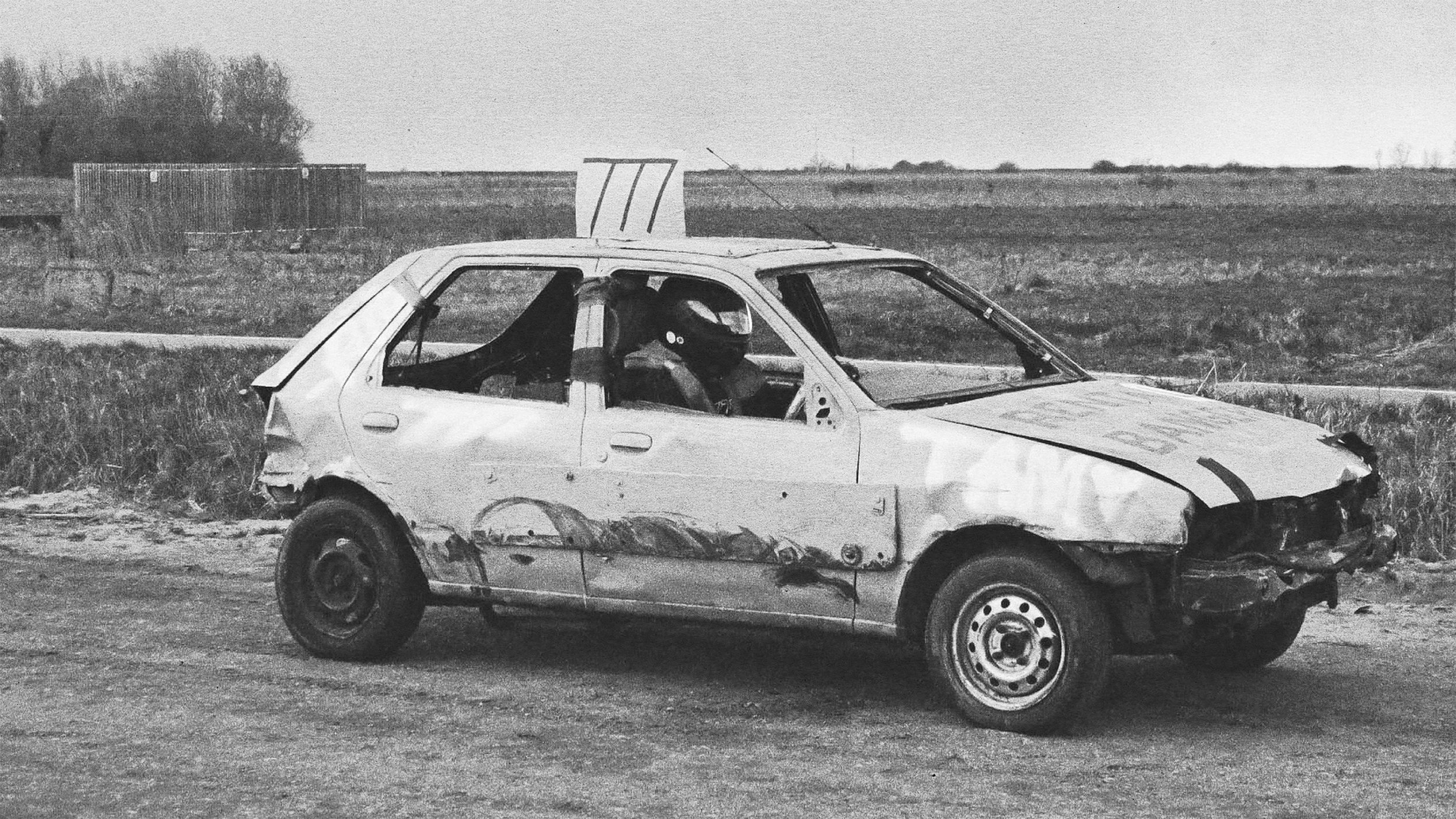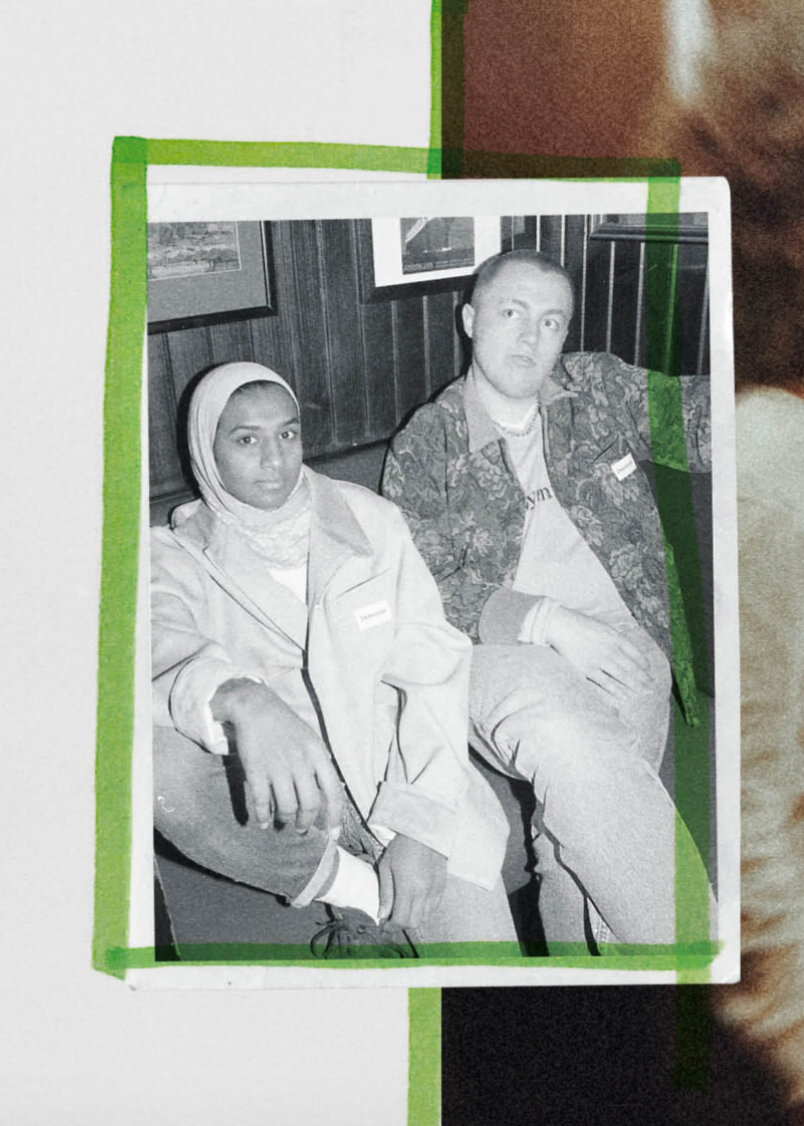YOUNG BRITS DOING BITS: TOMORROW’S WARRIORS
Music
YOUNG BRITS DOING BITS: TOMORROW’S WARRIORS
Words:
Makeda Krish
Imagery:
Tom Shotton
The last few years have seen an explosion of new Jazz in the UK and it is showing little sign of slowing down. With tours selling out across the country and beyond, band merch becoming popular accessories, and festival bills filled with the latest UK Jazz acts, now really is the time for this current resurgence of the genre to enter the mainstream. As musicians join ranks to collaborate and support one another, we find a music community characterised by openness and inclusivity, both in the range of musicians that form it, and the genres that are blended into the music. Mixing the more ‘classical’ sounds and structures of Jazz with genres such as Afrobeat, grime, electronic, dub and hiphop, the resultant music is Jazz with a difference, and it is fantastically, impossibly infectious.
However, a reflection on UK Jazz today would be incomplete without a look back at the origins of where this movement began. There is no better place to start than with Tomorrow’s Warriors, the music development and creative production organization, which after 28 years of existence continues to form the backbone of the UK Jazz circuit.
Tomorrow’s Warriors provide a platform for young musicians to come together and support each other in the pursuit of excellence and creativity. In order to discover more about the Warriors and its impact on the players that it works with I decided to talk to some of the vast family that it has created.
So, wellies, raincoat and sun cream at the ready, I headed off to We Out Here festival where current warriors and warrior alumni were soon to take to the stage.
There are few things that I would dub as British without a certain degree of cynicism or corniness, but the ability for a festival-goer to withstand the opening of the heavens is one of them. It is a moment of acceptance that all is drenched and will remain drenched for the remainder of the night with little reprieve. And it came early this festival weekend.
Despite the torrential downpours, the energy of the young musicians kept spirits high, and there was palpable and shared appreciation around the site: both audience and musicians were there for the music.
“
ONCE YOUNG MUSICIANS ENTER INTO TOMORROW’S WARRIORS, THEY NEVER TRULEY LEAVE. RATHER, THE FAMILY GROWS, SPREADS AND SOLIDIFIES.
CAPTION GOES HERE: LORUM IPSUM
CAPTION GOES HERE: LORUM IPSUM
CAPTION GOES HERE: LORUM IPSUM
Behind the rhythms, tones and feelings currently coming out of UK Jazz lie stories of diaspora, most notably (although not exclusively) from African/Caribbean backgrounds. They are the narratives of young musicians and of those that have come before them. They speak of the history of a nation – a history that the nation is often willing to forget.
Representation is essential. Too often, particular social groups remain unseen or misrepresented within the eye of the media and wider UK society. This has, and largely remains true for many different minorities. Left without the validation of seeing others like themselves represented, proceeding generations remain unaware of the creativity and innovation that continues to boil below the surface. And it was with this understanding that Tomorrow’s Warriors was created.
Tomorrow’s Warriors was founded by Gary Crosby and Janine Irons in response to the lack of recognition and platforms available to musicians from African/Caribbean backgrounds. It was, as Janine explains, ‘really to see others who looked like me, give them a voice, give them life and give them exposure’. There had always been the questions ‘why aren’t they there?’, why aren’t there more?’’ and these needed an answer. Through their incredible work over the past three decades, Tomorrow’s Warriors have used music education as a way to pass knowledge, create role models and give exposure to generations of talented young musicians, and they have succeeded. Amazingly, all for free.
It’s no surprise that the performances are Tomorrow’s Warriors best advertisement. Seeing other young people, from a wide range of backgrounds, playing and conversing together is an instant confirmation of possibility.
Recounting his introduction to a Tomorrow’s Warriors session at the South Bank Centre, soulful saxophonist Kaidi Akinnibi recalls “going to Warriors and meeting [professional saxophonist] Nathaniel Facey.” For Kaidi “seeing someone who I thought wow, you’re playing is beyond comprehension was just very very inspirational for me.” For Kaidi just “seeing a room full of young people all trying to learn Jazz and master the music just kick-started my progression into Jazz music.” The inspiration that Kaidi describes is a story that recurs time and again over the interviews that I conducted. As Gary underlines, “Tomorrow’s Warriors exists to give young people the tools to forge their own musical pathways”. It is an organisation of empowerment.
In the true spirit of Jazz, Tomorrow’s Warriors’ recruitment plan need not go much further than word of mouth. And news travels fast. Over 28 years there has been a constant stream of talented and innovative musicians passing through its doors. Alumni Shirely Tetteh (guitarist) of Maisha, Nerija and her own project alias, Nardeydey, and Theon Cross (tuba) of Son’s of Kemet and his project FYAH, both cite being recommended to go to Warriors by friends (or in the case of Theon, by his older brother, prominent trombone player, Nathaniel Cross).
Another word that is unavoidable when talking about the organisation is ‘community’. At Tomorrow’s Warriors everyone is welcome. This was unhesitatingly the answer that both Gary and Janine gave separately when I put the question to them. ‘Tomorrow’s Warriors is like a microcosm of the world that we really want to live in’ (Janine Irons). It is a space that embraces Britain’s diversity.
Once young musicians enter into Tomorrow’s Warriors, they never truly leave. Rather, the family grows, spreads and solidifies.
There are countless examples of the strength and love found in the family that Tomorrow’s Warriors has created, spanning generations and backgrounds. They have offered a way of living, expressing, and interacting with others that is built on love, care and mutual determination to strive above and beyond. And of course, to catch jokes. Lying curled up together as I interview them, keyboardist and pianist Roella Oloro and bassist Izzy Burnham, who are both trailblazing their way in the current music world, are prime examples of the way that life as a warrior creates long-lasting, loving friendships. Such enduring Warrior bonds are readable in the burgeoning UK Jazz scene and the groups that are currently making there mark in it – Cassie Kinoshi’s SEED Ensemble, EZRA Collective and Nerija – to name but a few. As Izzy notes, ‘almost everyone that’s successful has ties to TW and what Gary Crosby and Janine Irons do.’ It has ‘stood the test of time.’
Tomorrow’s Warriors has formed something that goes beyond the rehearsal rooms. Both Theon and Shirley speak of lasting memories with Tomorrow’s Warriors that were made once the playing was done and no one was ready to leave. Theon describes how ‘Nathaniel [Cross], Moses [Boyd], Zuri [Jarret-Boswell], Tyrone [Isaac-Stuart], Nubya [Garcia], everyone around that time [would] literally just hang out after and just play card games and bust jokes, have fun’. It is a memory that Shirley echoed in a separate interview, as she recounts ‘we just used to like hang there for hours and talk and like argue and debate and chat and laugh […] I just remember this one time [Zuri] bought us ice cream and the sun was shining and it was just like[…] this frozen moment’. What these interviews reveal is an organisation that is also about allowing young people to be themselves and to be accepted. In this current moment of global social, economic, political and environmental uncertainty, spaces like these could not be more important to sustain.
“
JAZZ REQUIRES INTROSPECTION. IN ORDER TO PLAY IT, ONE MUST FIRST LISTEN TO THE INNER SELF, AND TO THE HISTORY OF THE MUSIC, AND FIND OUT WHAT MORE NEEDS TO BE SAID.
No commentary would be complete without a look at the music genre that Tomorrow’s Warriors centres itself around. Jazz. As Gary explains, ‘Jazz has always been a rebellious music. From its inception’. It relies on the understanding of certain rules in order to break them, and with it, a way to speak one’s truth and allow conversations to flow. Yet although the foundations of Jazz are formed of complex and in-depth theories, it is also a music of subjectivity and improvisation. It is a kind of freedom. It is ‘a release […] a way to express’ (Kaidi).
Talking to Roella, her relationship with Jazz is clear. ‘Jazz means sooo much to me […] it’s my main form of expression, it’s the first art form where I could truly be myself’. And she is not alone in this view. ‘Jazz means self-expression’ says Theon. ‘It’s self-acceptance. It means discipline. It means being yourself and knowing yourself. I mean, it’s a music that requires you to go inward. It’s not about just tryna tell somebody else’s story. It’s a genre that requires you to know your history, and know the stories of people that have come before you, but then trying to interpret the tradition in your own way. ‘It means, respecting art and creating your own’.
What Roella and Theon both describe is music that speaks from the inside, out. Jazz requires introspection. In order to play it, one must first listen to the inner self, and to the history of the music, and find out what more needs to be said. Ever-philosophising, powerhouse saxophonist Deji puts it perfectly, ’if you are truly a musician or truly a philosopher or truly anything, you must show yourself first.’ It is a message that he learnt during a Tomorrow’s Warriors session.
Jazz is a balance between knowledge of the past and innovation in the present, one cannot exist without the other. It is about sustaining a history and adding your branch to the family tree.
In Jazz, and indeed in music and life more broadly, communication is key. From the moment the count in is given, every player embarks on a musical journey together, and all must pay attention to each other’s movements, and be respectful to one another as they each takes their moment in the spotlight. This dialogue is often non-verbal, and was a conversation that I saw time and again in all of the five Tomorrow’s Warriors bands that played over the festival, often carried out in the form of nods of appreciation, flickers of smiles and stares of awe at the music being created.
The last of the ‘Tomorrow’s Warriors presents’ acts was an open jam artfully led by Kaidi Akinnibi. Looking to the stage and seeing so many different musicians appreciate and create with each other, all locked in mutual encouragement, the jam spoke to all that I feel Tomorrow’s Warriors to be. Warm. Open. Determined. A powerful community.
‘Each one teach one’ is a longstanding part of Tomorrow’s Warriors’ vocabulary and is another reminder of the importance of allowing the voices of the past to inform the present in pursuit of new narratives and sounds.
Tomorrow’s Warriors not only teaches Jazz, but it also embodies the values that make Jazz such an expressive and collective genre. Representation. Empowerment. Community. Freedom. Self-Expression. Communication. Respect.
They are values that underscore today’s UK Jazz culture like never before, creating a space where positivity, movement and pure joy are now anticipated parts of the music experience. It is no wonder that more and more people are flocking to join in on the party.
Now, almost three decades on, Tomorrow’s Warriors continues to forge its legacy as a cornerstone of the Jazz world. As Theon puts it, ‘Tomorrows Warriors is essential for the life force of British Jazz.’ Support the roots and the rest will bloom.


